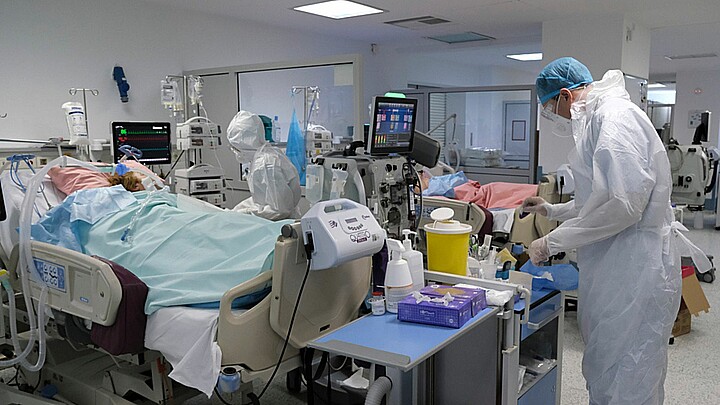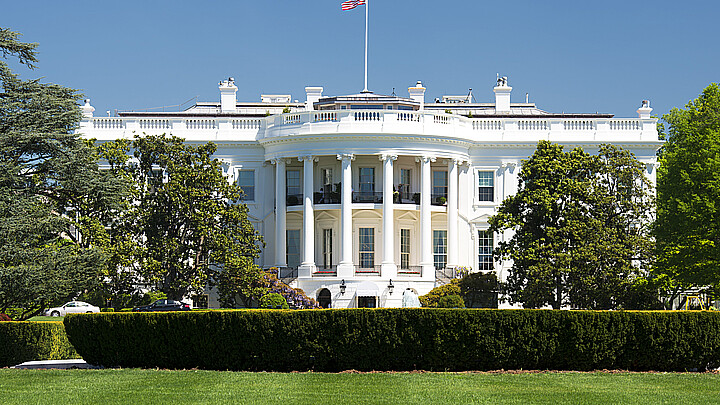Health
43% of Hispanic women ages 15-49 live in pro-life states with abortion bans or restrictions
The study found that close to 6.7 million Hispanic women, in the aforementioned age group live in 26 states that have banned or are leaning toward banning abortions

October 5, 2023 9:30am
Updated: October 5, 2023 9:30am
Forty three percent of Hispanic women between the ages of 15-49 live in states with current or future abortion restrictions, according to a new study from the National Partnership for Women & Families and the National Latina Institute for Reproductive Justice.
The study found that close to 6.7 million Hispanic women, in the aforementioned age group live in 26 states that have banned or are leaning toward banning abortions.
The study is the result of changes in the law arising from the Supreme Court’s 2022 ruling in Dobbs v. Jackson Women’s Health Organization, which effectively struck down the Court’s 1973 ruling of Roe v. Wade that asserted the procedure was a “fundamental right” under a “penumbra of privacy” that exists under the First, Third, Fourth, Ninth and Fourteenth Amendments.
The 6.7 million number is an increase of an estimated 200,000 more Latinas that are now living in states with significant abortion restrictions, according to the figures.
In November 2022, NBC Latino reported that 4 out of 10 Latinas lived in states with abortion bans. That number is now currently on the rise, according to a number of studies.
The new study from the National Partnership for Women & Families and the National Latina Institute for Reproductive Justice says that three quarters of the Hispanic women who live in states with abortion bans or restrictions are concentrated in just three states: Arizona, Florida and Texas.
Latinas in those states make up almost one-third of all Hispanic women of reproductive age in the United States.
Arizona is the residence state to 585,600 Latinas of reproductive age, Florida is home to 1.4 million and Texas to 2.9 million.
“More providers, centers and clinics that have long served as entry points for women to receive affordable reproductive health care services such as birth control and maternity care have been closing down in states riddled with abortion bans and restrictions,” according to an Oct. 3 report filed by NBC Latino.
Lupe Rodríguez, executive director of the National Latina Institute for Reproductive Justice, told NBC News that the conditions for Latinas to get reproductive health service has become complicated.
"There hasn’t really been any change in terms of shifting the political and legislative landscape to make it so that anything might have gotten better,” Rodriguez told NBC.
Many of the states effected are in the Midwest and South. A report published by the Guttmacher Institute, a private policy and research group says that while abortions remain more accessible in 24 states, 26 states have levied significant restrictions.
As a result, more than 3.1 million Hispanic women impacted in those 26 states, either by these current or future restrictions already have children, according to the report.
The report further says that about 27% of them have children under age 3.
One study, titled “The Effects of Carrying Unwanted Pregnancy to Term on Women’s Existing Children,” published by the National Institute of Health suggests that the restrictions could have an adverse impact on their children’s development and economic security.
“From 6 months to 4.5 years after their mothers sought abortions, existing children of women denied abortions had lower mean child development scores and were more likely to live below the Federal Poverty Level than the children of women who received a wanted abortion. There were no significant differences in child health or time spent with a caregiver other than the mother,” the report said.
Another study, known as “The Turnaway Study” published by the University of California San Francisco says that women facing such restrictions could face both harsher mental health outcomes economic problems than females who have received care.
“The study finds that many of the common claims about the detrimental effects on women’s health of having an abortion are not supported by evidence,” the study asserts. “For example, women who have an abortion are not more likely than those denied the procedure to have depression, anxiety, or suicidal ideation. We find that 95% of women report that having the abortion was the right decision for them over five years after the procedure.”
The study also found that there were “serious consequences of being denied a wanted abortion on women’s health and wellbeing. Women denied a wanted abortion who have to carry an unwanted pregnancy to term have four times greater odds of living below the Federal Poverty Level.”
According to Rodriguez, the changes in law are compelling more women to travel and cross state lines to seek reproductive care. It also places migrants in a position where it amplifies their risk to face deportation, depending on their status.
According to the report published by the National Partnership for Women & Families and the National Latina Institute for Reproductive Justice, more than 3 million Hispanic women living in states where abortion is facing more restrictions are “economically insecure” or are part of families with income below 200% of the federal poverty line.
The study also suggested that more than 1.4 million Latinas in the 26 states with more reproductive choice restrictions hold professions in the service industry, often creating complications for health insurance and paid leave.









